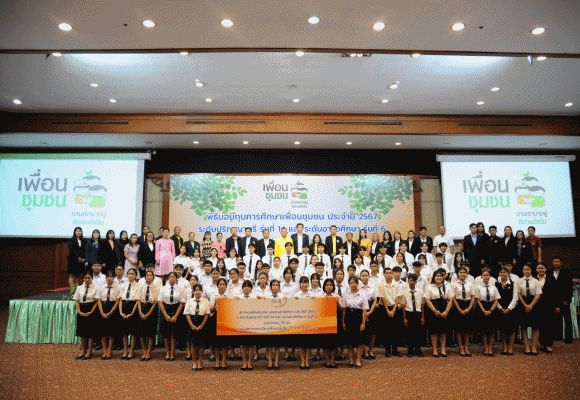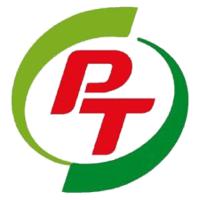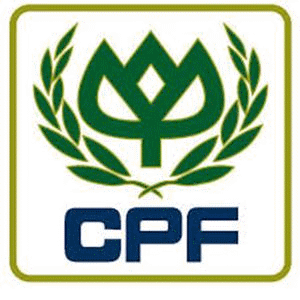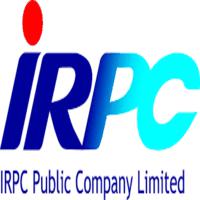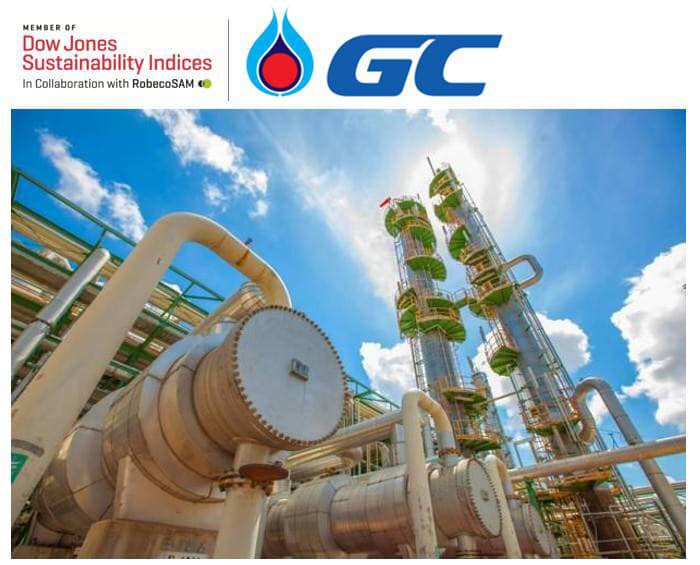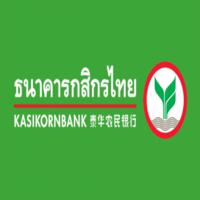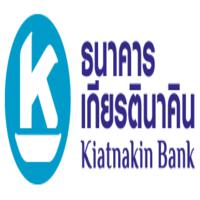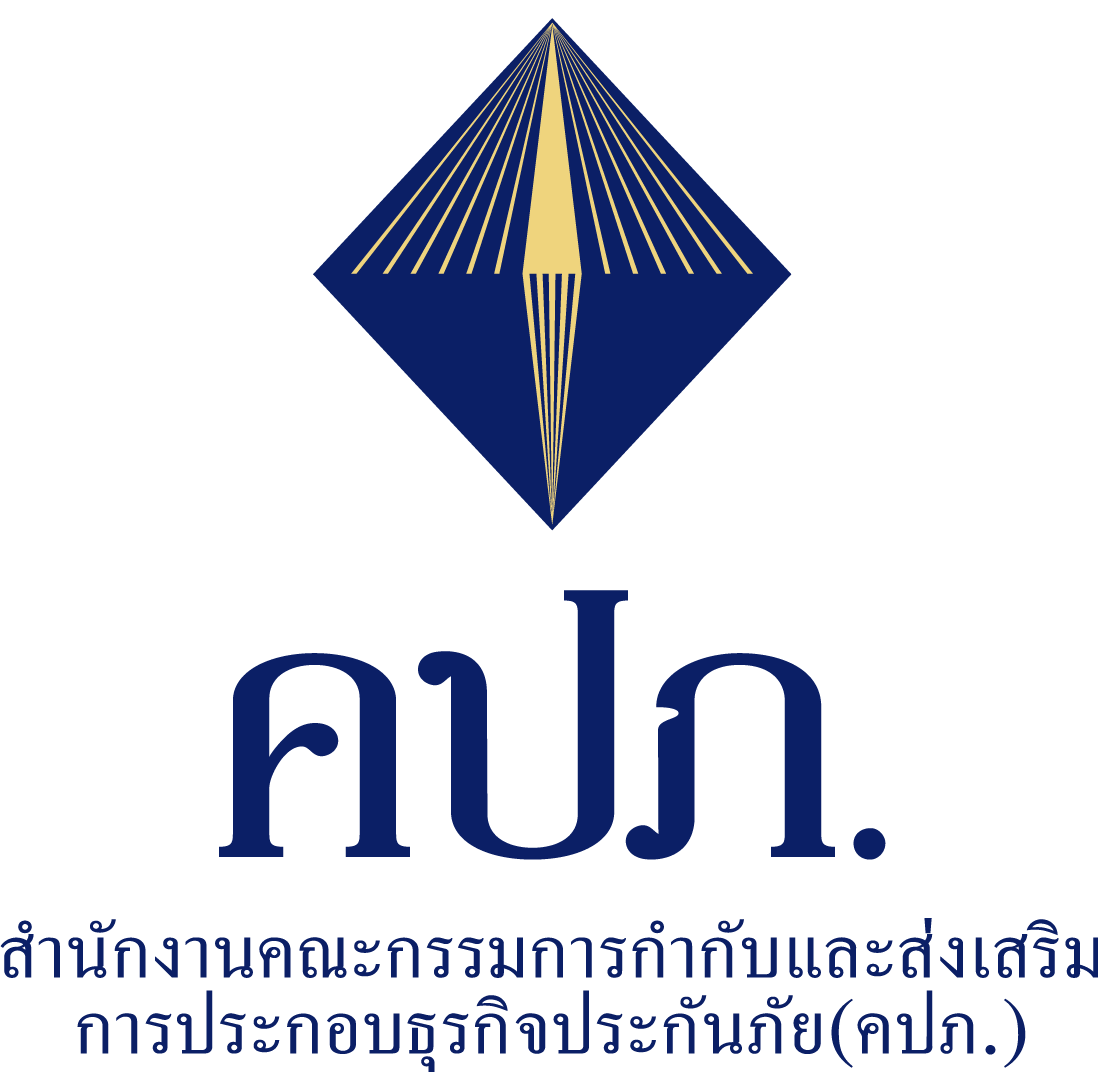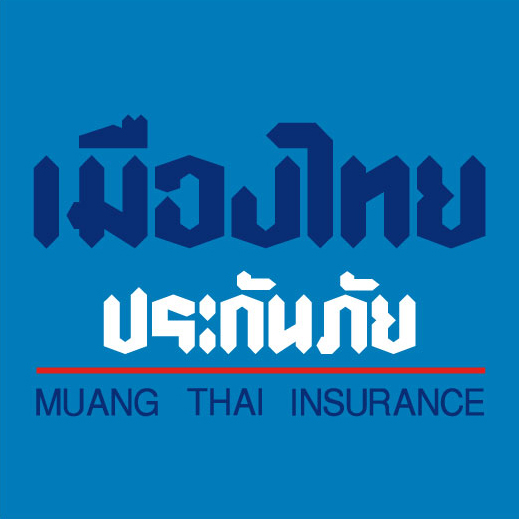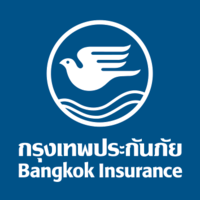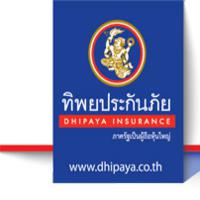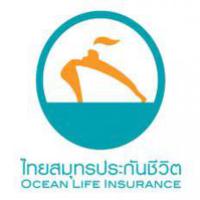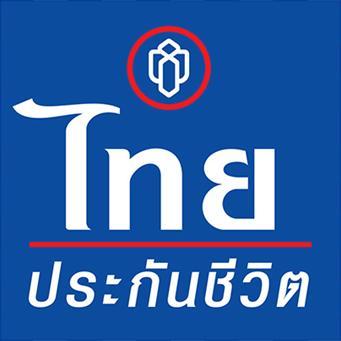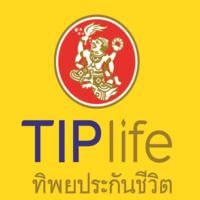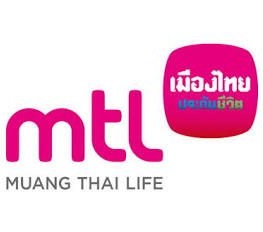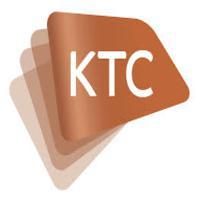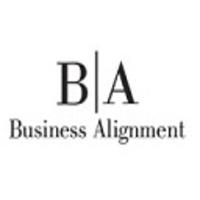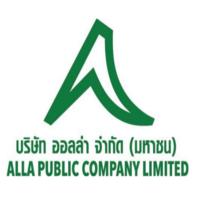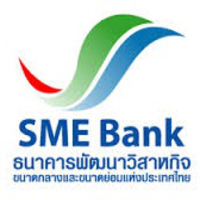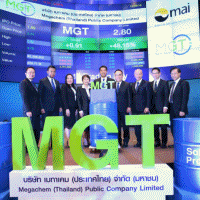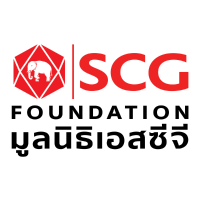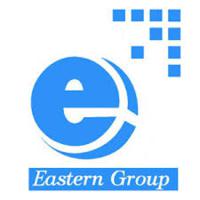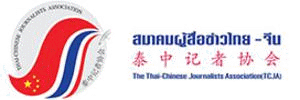- Details
- Category: แบงก์พาณิชย์
- Published: Sunday, 05 April 2020 19:18
- Hits: 6274
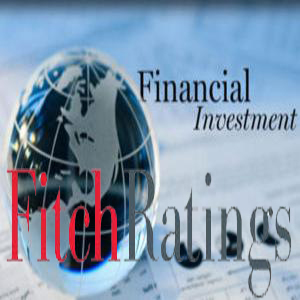 ฟิทช์ ประกาศคงอันดับเครดิตของธนาคารกรุงไทย และบล. กรุงไทย ซีมิโก้
ฟิทช์ ประกาศคงอันดับเครดิตของธนาคารกรุงไทย และบล. กรุงไทย ซีมิโก้
ฟิทช์ เรทติ้งส์ – สิงคโปร์/กรุงเทพฯ – 2 เมษายน 2563: ฟิทช์ เรทติ้งส์ ประกาศคงอันดับเครดิตสากลสกุลเงินต่างประเทศระยะยาว (Long-Term Issuer Default Rating) ของธนาคารกรุงไทย จำกัด (มหาชน) หรือ KTB ที่ ‘BBB’ และคงอันดับเครดิตภายในประเทศระยะยาวที่ ‘AA+(tha)’ และฟิทช์ยังได้ประกาศคงอันดับเครดิตภายในประเทศระยะยาว (National Long-Term Rating) ของบริษัทหลักทรัพย์ กรุงไทย ซีมิโก้ จำกัด หรือ KTZ ที่ ‘A+(tha)’ ทั้ง KTB และ KTZ มีแนวโน้มอันดับเครดิตมีเสถียรภาพ
พร้อมกันนี้ ฟิทช์ได้ปรับลดอันดับเครดิตภายในประเทศของหุ้นกู้ด้อยสิทธิของ KTB ลงเป็น ‘AA-(tha)’ จาก ‘AA(tha)’
รายละเอียดอันดับเครดิตทั้งหมดได้แสดงไว้ในส่วนท้าย
ปัจจัยสนับสนุนอันดับเครดิต – อันดับเครดิตสากลสกุลเงินต่างประเทศ อันดับเครดิตภายในประเทศ และอันดับเครดิตหุ้นกู้ไม่ด้อยสิทธิ
อันดับเครดิตของ KTB มีปัจจัยสนับสนุนหลักมาจากอันดับเครดิตสนับสนุนที่ ‘2’ อันดับเครดิตสนับสนุนขั้นต่ำ (Support Rating Floor) ที่ ‘BBB’ เนื่องจากฟิทช์เชื่อว่าความเป็นไปได้สูงที่รัฐบาลจะให้การสนับสนุนพิเศษที่นอกเหนือจากการดำเนินงานตามปรกติ (extraordinary support) แก่ KTB ในกรณีที่มีความจำเป็น
ปัจจัยสนับสนุนอันดับเครดิต – อันดับความแข็งแกร่งทางการเงิน (Viability Rating)
อันดับความแข็งแกร่งทางการเงินของ KTB ที่ ‘bbb-’ พิจารณาถึงถึงเครือข่ายธุรกิจที่แข็งแกร่งในประเทศไทยและฐานลูกค้าที่แข็งแกร่งโดยเฉพาะในกลุ่มรัฐวิสาหกิจและข้าราชการ โดยความสัมพันธ์กับหน่วยงานรัฐเป็นยปัจจัยช่วยให้ธนาคารรักษาความสามารถในการระดมทุน (funding) ให้อยู่ในระดับที่มีเสถียรภาพและรักษาความสามารถในการแข่งขัน ฐานะเงินกองทุนของ KTB ปรับตัวดีขึ้นมาในระดับใกล้เคียงกับกลุ่มธนาคารในต่างประเทศที่มีอันดับความแข็งแกร่งทางการเงินคล้ายกัน และช่วยลดลความเสี่ยงได้บ้าง ณ ระดับเครดิตปัจจุบัน แต่อย่างไรก็ตามอัตราส่วนเงินกองทุนส่วนที่เป็นของเจ้าของต่อสินทรัพย์เสี่ยง (Core Equity Tier 1) ที่ 15.2% ณ สิ้นปี 2562 ยังคงอยู่ในระดับที่ต่ำกว่าเมื่อเทียบกับค่าเฉลี่ยอุตสาหกรรมที่ 16% อีกทั้งฟิทช์ยังมองว่า KTB มีระดับความเสี่ยงที่ยอมรับได้สูงกว่าธนาคารขนาดใหญ่รายอื่นในประเทศ เนื่องจากธนาคารมีการให้การสนับสนุนโครงการของรัฐบาลบ้าง
อันดับความแข็งแกร่งทางการเงินยังสะท้อนถึงความท้าทายของสภาพแวดล้อมในการดำเนินธุรกิจและผลกระทบที่รุนแรงต่อเศรษฐกิจจากการแพร่ระบาดของโคโรน่าไวรัสที่กระจายไปในวงกว้าง โดยผลกระทบดังกล่าวได้เพิ่มแรงกดดันต่อสภาวะแวดล้อมในการดำเนินงานที่อ่อนแอมาอย่างต่อเนื่องในช่วงหลายปีที่ผ่านมาเนื่องจากภาวะเศรษฐกิจทั้งภายในประเทศและทั่วโลกที่ซบเซา แม้ว่าธนาคารแห่งประเทศไทยจะมีมาตรการผ่อนปรนเพื่อช่วยสนับสนุนการปรับโครงสร้างหนี้ แต่มาตรการเหล่านี้ไม่น่าจะหักล้างความเสี่ยงที่เกิดจากผลกระทบจากสภาวะเศรษฐกิจตกต่ำต่อลูกหนี้ที่มีฐานะทางการเงินที่อ่อนแอหรือเป็นกลุ่มที่มีความเปราะบางได้ สำหรับข้อมูลเพิ่มเติมเกี่ยวกับสภาพแวดล้อมในการดำเนินงานของธาคารไทยสามารถดูได้จาก “Coronavirus Outbreak Increases Challenges for Thai Banks’ Operating Environment” ลงวันที่ 2 เมษายน 2563
เนื่องจากระยะเวลาและแนวโน้มความรุนแรงของสถานการณ์การระบาดของโคโรน่าไวรัสยังมีความไม่แน่นอน ซึ่งตามสมมติฐานกรณีฐานของฟิทช์นั้นคุณภาพของสินทรัพย์รวมถึงผลการดำเนินงานของ KTB อาจได้รับผลกระทบอย่างมากในช่วงระยะเวลา 2 ปีข้างหน้าเมื่อเทียบกับผลการดำเนินงานในปี 2562 โดยนอกจากระดับค่าใช้จ่ายการสำรองหนี้สูญ (credit cost) ที่อาจเพิ่มขึ้นแล้ว รายได้ของธนาคารก็อาจจะปรับตัวลดลงจากภาวะอัตราดอกเบี้ยที่อยู่ในระดับต่ำรวมถึงรายได้ที่ไม่ใช้ดอกเบี้ยที่ชะลอตัว
อย่างไรก็ตาม ด้วยอันดับความแข็งแกร่งทางการเงินของ KTB ซึ่งอยู่ในระดับที่ต่ำกว่าธนาคารขนาดใหญ่ในประเทศอยู่ 1 อันดับ น่าจะสะท้อนไปแล้วบ้างถึงความผันผวนที่จะสูงกว่าเมื่อเทียบกับธนาคารที่มีอันดับความแข็งแกร่งทางการเงินสูงกว่าและอยู่ในสภาวะแวดล้อมในระดับเดียวกัน KTB ยังคงมีความสามารถในการรองรับความเสี่ยงในด้านของเงินกองทุนและอัตราส่วนสำรองหนี้สูญต่อสินเชื่อด้อยคุณภาพ (132% ณ สิ้นปี 2562) น่าจะช่วยรองรับความเสี่ยงได้ อีกทั้งมาตรการผ่อนปรนของธนาคารแห่งประเทศไทยในด้านคุณภาพสินทรัพย์และการปรับโครงสร้างหนี้น่าจะช่วยบรรเทาความเสี่ยงไปได้ในระดับหนึ่ง อย่างไรก็ตามฟิทช์ยังเชื่อผลการดำเนินงานของธนาคารไทยน่าจะปรับตัวแย่ลงในช่วง 2 ปีข้างหน้า
ปัจจัยสนับสนุนอันดับเครดิต – อันดับเครดิตสนับสนุน (Support Rating) และ อันดับเครดิตสนับสนุนขั้นต่ำ (Support Rating Floor)
อันดับเครดิตสนับสนุนและอันดับเครดิตสนับสนุนขั้นต่ำของ KTB มีปัจจัยในการพิจารณาจากการที่ฟิทช์เชื่อว่าความเป็นไปได้สูงที่รัฐบาลจะให้การสนับสนุนพิเศษที่นอกเหนือจากการดำเนินงานตามปรกติ ในกรณีที่มีความจำเป็น นอกจากนี้ KTB ยังเป็น 1 ใน 5 ธนาคารที่ธนาคารแห่งประเทศไทยกำหนดให้เป็นธนาคารที่มีนัยต่อระบบเศรษฐกิจของประเทศ (D-SIB) ประกอบกับ KTB ยังมีความสำคัญในเชิงกลยุทย์ต่อรัฐบาลไทย โดย KTB เป็นธนาคารพาณิชย์แห่งเดียวที่รัฐบาลเป็นผู้ถือหุ้นส่วนใหญ่ ดังนั้น KTB จึงมีความพร้อม (ด้านของระบบและเครือข่ายสาขา) ที่จะช่วยให้การสนับสนุนแก่นโยบายจากภาครัฐ เช่น โครงการกระเป๋าเงินอิเลคทรอนิกส์ (National e-wallet)
ปัจจัยสนับสนุนอันดับเครดิต – หุ้นกู้ด้อยสิทธิ
อันดับเครดิตของหุ้นกู้ด้อยสิทธิสกุลเงินบาทที่นับเป็นเงินกองทุนชั้นที่ 2 ตามเกณฑ์บาเซล 3 ของ KTB ถูกปรับลดอันดับลงมาที่ ‘AA-(tha)’ ซึ่งต่ำกว่าอันดับเครดิตภายในประเทศระยะยาวและเป็นอันดับเครดิตอ้างอิงของหุ้นกู้ด้อยสิทธิอยู่ 2 อันดับ ทั้งการจัดอันดับเครดิตดังกล่าวสอดคล้องกับกรณีพื้นฐานตามเกณฑ์การจัดอันดับเครดิตฉบับปรับปรุงใหม่ของฟิทช์ เนื่องจากหุ้นกู้ดังกล่าวมีโอกาสที่จะได้รับชำระหนี้คืน (recovery rate) ในอัตราที่ต่ำลงเมื่อเทียบกับหุ้นกู้ไม่ด้อยสิทธิ ไม่มีหลักประกัน หุ้นกู้ด้อยสิทธิดังกล่าวมีสถานะสิทธิด้อยกว่าหุ้นกู้ไม่ด้อยสิทธิไม่มีหลักประกัน และไม่มีคุณสมบัติบังคับตัดหนี้สูญทั้งจำนวน และหุ้นกู้ดังกล่าวไม่ได้ถูกปรับลดอันดับเพิ่มเติมเพื่อสะท้อนถึงความเสี่ยงที่ผู้ถือหุ้นกู้จะไม่ได้รับผลตอบแทนตามที่ดาดการณ์ (non-performance risk) เนื่องจากไม่มีคุณสมบัติรองรับผลขาดทุนระหว่างการดำเนินกิจการ (going-concern loss absorption) เช่น สิทธิในการยกเว้นหรือการเลื่อนจ่ายดอกเบี้ย
ปัจจัยสนับสนุนอันดับเครดิต – บริษัทลูกและบริษัทร่วม
อันดับเครดิตภายในประเทศระยะยาวของ KTZ อยู่ต่ำกว่าอันดับเครดิตภายในประเทศระยะยาวของ KTB (ซึ่งเป็นผู้ถือหุ้นใหญ่) 3 อันดับ เพื่อสะท้อนถึงการที่ผู้ถือหุ้นใหญ่และผู้ถือหุ้นส่วนน้อยของ KTZ มีสัดส่วนการถือหุ้นในระดับที่ใกล้เคียงกัน รวมทั้งยังสะท้อนถึงความไม่แน่นอนในนโยบายของรัฐบาลและลำดับความสำคัญในการให้การสนับสนุนแก่บริษัทในฐานะที่รัฐบาลเป็นผู้ถือหุ้นใหญ่ของกลุ่มในกรณีที่ KTB ซึ่งเป็นผู้ถือหุ้นใหญ่โดยตรงของ KTZ ไม่สามารถให้การสนับสนุนแก่บริษัทได้ด้วยฐานะทางการเงินของธนาคารเองในภาวะวิกฤต อย่างไรก็ตามในปีที่ผ่านมามีสัญญาณที่บ่งชี้ว่าความสัมพันธ์ของ KTZ กับ KTB มีความใกล้ชิดกันมากขึ้น เช่นการเปลี่ยนชื่อบริษัทและสัญญลักษณ์ทางการค้าที่คล้ายกันมากขึ้นกับของ KTB แม้ KTZ จะเป็นผู้นำเสนอผลิตภัณฑ์และบริการที่สำคัญแก่กลุ่มลูกค้าของธนาคาร แต่บริษัทยังมีความใกล้ชิดและเชื่อมโยงกับธนาคารแม่ในระดับที่น้อยกว่าเมื่อเทียบกับบริษัทหลักทรัพย์ที่เป็นบริษัทลูกของธนาคารพาณิชย์ไทยที่ได้รับการจัดอันดับเครดิตโดยฟิทช์
อันดับเครดิตภายในประเทศของหุ้นกู้ไม่ด้อยสิทธิ ไม่มีหลักประกัน (senior unsecured debt) ของ KTZ ที่ ‘A+(tha)’ อยู่ในระดับเดียวกันกับอันดับเครดิตภายในประเทศระยะยาวของบริษัท เนื่องจากหุ้นกู้ดังกล่าวมีสถานะเป็นภาระผูกพันที่ไม่ด้อยสิทธิ ไม่มีหลักประกันของบริษัท
การพิจารณาปัจจัยด้านสิ่งแวดล้อม สังคม และธรรมาภิบาล (ESG)
KTB มีระดับคะแนนความสัมพันธ์ของโครงสร้างธรรมาภิบาล (Governance Structure) ที่ระดับ 4 เนื่องจากมีโอกาสที่ภาครัฐจะมีอิทธิพลต่อการกำกับดูแลกิจการและความเสี่ยง (risk governance) จากการถือหุ้นโดยรัฐบาลในธนาคารรวมถึงจะสามารถมีอิทธิพลต่อคณะกรรมการและผู้บริหารซึ่งเป็นปัจจัยที่อาจส่งผลกระทบทางลบต่อโครงสร้างเครดิตและสัมพันธ์ต่ออันดับเครดิตเช่นเดียวกับปัจจัยสนับสนุนอันดับเครดิตอื่น
ปัจจัยที่อาจมีผลต่ออันดับเครดิตในอนาคต – อันดับเครดิตสากลสกุลเงินต่างประเทศ และอันดับเครดิตหุ้นกู้ไม่ด้อยสิทธิ
ปัจจัยที่อาจส่งผลกระทบเชิงบวกหรือส่งผลให้เกิดการปรับเพิ่มอันดับเครดิต (ปัจจัยเดียวหรือหลายปัจจัยรวมกัน)
อันดับเครดิตสากลสกุลเงินต่างประเทศและอันดับเครดิตหุ้นกู้ไม่ด้อยสิทธิของ KTB อาจได้รับผลกระทบจากการเปลี่ยนแปลงของอันดับเครดิตสนับสนุนขั้นต่ำ ซึ่งอันดับเครดิตสนับสนุนขั้นต่ำนั้นสะท้อนถึงมุมมองของฟิทช์ต่อความสามารถและโอกาสที่ภาครัฐจะให้การสนับสนุนช่วยเหลือแก่ KTB ได้อย่างทันท่วงที ดังนั้นการปรับเพิ่มอันดับเครดิตสนับสนุนขั้นต่ำ (ดูได้จากด้านล่าง) น่าจะส่งผลให้เกิดการปรับเพิ่มอันดับเครดิตดังกล่าว
ปัจจัยที่อาจส่งผลกระทบเชิงลบหรือส่งผลให้เกิดการปรับลดอันดับเครดิต (ปัจจัยเดียวหรือหลายปัจจัยรวมกัน)
การปรับลดอันดับเครดิตสนับสนุนขั้นต่ำ (ดูได้จากด้านล่าง) น่าจะส่งผลให้เกิดการปรับลดอันดับเครดิตดังกล่าวเช่นกัน
ปัจจัยที่อาจมีผลต่ออันดับเครดิตในอนาคต – อันดับเครดิตภายในประเทศและอันดับเครดิตหุ้นกู้ไม่ด้อยสิทธิ
ปัจจัยที่อาจส่งผลกระทบเชิงบวกหรือส่งผลให้เกิดการปรับเพิ่มอันดับเครดิต (ปัจจัยเดียวหรือหลายปัจจัยรวมกัน)
อันดับภายในประเทศอาจได้รับการปรับเพิ่มอันดับหาก มีการปรับเพิ่มอันดับเครดิตสนับสนุนขั้นต่ำได้ขึ้นมาเท่ากับอันดับเครดิตสากลสกุลเงินต่างประเทศระยะยาวของประเทศไทย อย่างไรก็ตามเหตุการณ์ดังกล่าวไม่น่าเกิดขึ้นในระยะสั้น
ปัจจัยที่อาจส่งผลกระทบเชิงลบหรือส่งผลให้เกิดการปรับลดอันดับเครดิต (ปัจจัยเดียวหรือหลายปัจจัยรวมกัน)
การปรับตัวด้อยลงของโครงสร้างเครดิตของ KTB เทียบกับบริษัทหรือธนาคารอื่นที่ได้การจัดอันดับเครดิตภายในประเทศ อาจส่งผลให้เกิดการปรับลดอันดับเครดิต เหตุการณ์ดังกล่าวอาจเกิดได้หากฟิทช์ประเมินว่ารัฐบาลมีควรามสามารถในการสนับสนุนแหรือมีโอกาสที่จะให้การสนับสนุนแก่ธนาคารลดลง
ปัจจัยที่อาจมีผลต่ออันดับเครดิตในอนาคต – อันดับความแข็งแกร่งทางการเงิน
ปัจจัยที่อาจส่งผลกระทบเชิงบวกหรือส่งผลให้เกิดการปรับเพิ่มอันดับเครดิต (ปัจจัยเดียวหรือหลายปัจจัยรวมกัน)
ารปรับเพิ่มอันดับความแข็งแกร่งทางการเงินมีความเป็นไปได้น้อยในขณะนี้ เนื่องจากยังคงมีความท้าทายจากสภาวะแวดล้อมในการดำเนินงานที่ไม่เอื้อต่อการดำเนินงานและธนาคารมีระดับความเสี่ยงที่ยอมรับได้ที่สูงกว่าเมื่อเทียบกันธนาคารขนาดใหญ่ในประเทศ ซึ่งฟิทช์คาดว่าปัจจัยดังกล่าวจะส่งผลให้คุณภาพสินทรัพย์และผลประกอบการของธนาคารปรับตัวด้อยลงในช่วง 2 ปีข้างหน้า
ปัจจัยที่อาจส่งผลกระทบเชิงลบหรือส่งผลให้เกิดการปรับลดอันดับเครดิต (ปัจจัยเดียวหรือหลายปัจจัยรวมกัน)
อันดับความแข็งแกร่งทางการเงินอาจถูกปรับลดอันดับลงมาเป็น ‘bb+’ หากฐานะเงินกองทุนของธนาคารปรับตัวลดลงมาในระดับที่ฟิทช์ประเมินว่าไม่เพียงพอที่จะรองรับความเสี่ยง เช่น อัตราส่วนเงินกองทุนชั้นที่ 1 ส่วนที่เป็นของเจ้าของ หรือ CET1 ต่ำกว่า 13%
ปัจจัยที่อาจมีผลต่ออันดับเครดิตในอนาคต – อันดับเครดิตสนับสนุนและอันดับเครดิตสนับสนุนขั้นต่ำ
ปัจจัยที่อาจส่งผลกระทบเชิงบวกหรือส่งผลให้เกิดการปรับเพิ่มอันดับเครดิต (ปัจจัยเดียวหรือหลายปัจจัยรวมกัน)
การปรับเพิ่มอันดับเครดิตสนับสนุนไม่น่าจะเกิดขึ้น ยกเว้นอันดับเครดิตสากลสกุลเงินต่างประเทศระยะยาวของประเทศไทยได้รับการปรับเพิ่มอันดับขึ้นไปที่ ‘A’ และฟิทช์เชื่อว่าไม่ได้มีการเปลี่ยนแปลงในโอกาสที่รัฐบาลจะให้การสนับสนุนแก่ธนาคาร อันดับเครดิตสนับสนุนขั้นต่ำของ KTB อาจเปลี่ยนแปลงได้จากการเปลี่ยนแปลงในมุมมองของฟิทช์ต่อแนวโน้มที่รัฐบาลจะให้การสนับสนุนแก่ธนาคาร อันดับเครดิตสนับสนุนขั้นต่ำอาจได้รับการปรับเพิ่มอันดับหากฟิทช์เชื่อว่า KTB มีบทบาทในเชิงนโยบายของรัฐที่ชัดเจนและมั่นคงมากขึ้นกว่าระดับเดิมที่ฟิทช์เคยคาดไว้ พร้อมทั้งยังคงมีความสำคัญต่อระบบเศรษฐกิจและการเงินในประเทศ
ปัจจัยที่อาจส่งผลกระทบเชิงลบหรือส่งผลให้กิเดการปรับลดอันดับเครดิต (ปัจจัยเดียวหรือหลายปัจจัยรวมกัน)
การปรับลดอันดับเครดิตสนับสนุนอาจเกิดขึ้นได้ หากอันดับเครดิตสากลสกุลเงินต่างประเทศระยะยาวของประเทศไทยถูกปรบลดอันดับลงไปที่ ‘BBB-’ หรือต่ำกว่า นอกจากนี้อันดับเครดิตสนับสนุนขั้นต่ำของ KTB อาจถูกปรับลดลงมาเท่ากับธนาคารพาณิชย์เอกชนที่มีนัยสำคัญต่อระบบ (D-SIB) หากฟิทช์เชื่อว่าความสัมพันธ์ระหว่างธนาคารกับรัฐปรับตัวลดลงอย่างมาก เช่น การลดสัดส่วนการถือหุ้นของรัฐลงไปต่ำกว่า 50% และการไม่มีความสัมพันธ์ที่เชื่อมโยงกับกระทรวงการคลังในด้านการบริหารจัดการเงินสดให้กับรัฐบาล
ปัจจัยที่อาจมีผลต่ออันดับเครดิตในอนาคต – หุ้นกู้ด้อยสิทธิ
ปัจจัยที่อาจส่งผลกระทบเชิงบวกหรือส่งผลให้เกิดการปรับเพิ่มอันดับเครดิต (ปัจจัยเดียวหรือหลายปัจจัยรวมกัน)
อันดับเครดิตของหุ้นกู้ด้อยสิทธิสกุลเงินบาทของธนาคารจะได้รับผลกระทบจากการเปลี่ยนแปลงในอันดับเครดิตภายในประเทศระยะยาวของธนาคาร ซึ่งเป็นอันดับเครดิตอ้างอิง (anchor rating) ดังนั้นการปรับเพิ่มอันดับเครดิตภายในประเทศระยะยาวของธนาคาร จะส่งผลให้อันดับเครดิตของหุ้นกู้ด้อยสิทธิของธนาคารได้รับการปรับเพิ่มอันดับเช่นกัน
ปัจจัยที่อาจส่งผลกระทบเชิงลบหรือส่งผลให้เกิดการปรับลดอันดับเครดิต (ปัจจัยเดียวหรือหลายปัจจัยรวมกัน)
การปรับลดอันดับเครดิตภายในประเทศระยะยาวของธนาคาร จะส่งผลให้อันดับเครดิตของหุ้นกู้ด้อยสิทธิของธนาคารได้รับการปรับลดอันดับเช่นกัน
ปัจจัยที่อาจมีผลต่ออันดับเครดิตในอนาคต – บริษัทลูกและบริษัทร่วม
ปัจจัยที่อาจส่งผลกระทบเชิงบวกหรือส่งผลให้เกิดการปรับเพิ่มอันดับเครดิต (ปัจจัยเดียวหรือหลายปัจจัยรวมกัน)
ฟิทช์ อาจปรับเพิ่มอันดับเครดิตภายในประเทศของ KTZ หากฟิทช์เชื่อว่าโอกาส (propensity) ที่ KTB จะให้การสนับสนุนเป็นพิเศษที่นอกเหนือจากการสนันสนุนในด้านการดำเนินงานปรกติแก่ KTZ มีการปรับตัวเพิ่มสูงขึ้นกว่าระดับปัจจุบัน เหตุการณ์ดังกล่าวอาจเกิดขึ้นได้ หาก KTB เพิ่มสัดส่วนการถือหุ้นใน KTZ (มีมีระดับการควบคุมที่สูงขึ้น) หรือ KTZ มีบทบาทในเชิงกลยุทธ์ที่สำคัญขึ้นต่อธนาคาร
ปัจจัยที่อาจส่งผลกระทบเชิงลบหรือส่งผลให้เกิดการปรับลดอันดับเครดิต (ปัจจัยเดียวหรือหลายปัจจัยรวมกัน)
ในทางกลับกันฟิทช์อาจปรับลดอันดับเครดิตภายในประเทศของ KTZ หาก KTZ มีความสำคัญในเชิงกลยุทธ์ต่อ KTB น้อยลง ซึ่งจะส่งผลให้โอกาสที่ KTB จะให้การช่วยเหลือและสนับสนุนแก่บริษัทปรับตัวลดลง ทั้งนี้เหตุการณ์ดังกล่าวอาจเกิดขึ้นได้ เช่นในกรณีที่ KTB ลดสัดส่วนการถือหุ้นในฐานะผู้ถือหุ้นใหญ่และระดับการควบคุมใน KTZ ลง การที่ KTB ลดระดับการสนับสนุนทางการเงินหรือการปฏิบัติงานที่มีให้กับ KTZ หรือหากผลการดำเนินงานในอนาคตของ KTZ หรือธนาคารแม่เกิดการเปลี่ยนแปลงอย่างมีนัยสำคัญและส่งผลให้เกิดการเปลี่ยนแปลงในด้านกลยุทธ์และลำดับความสำคัญในการดำเนินงาน ซึ่งอาจส่งผลให้มีความไม่ชัดเจนต่อโอกาสที่ธนาคารแม่จะให้การสนับสนุน
อันดับเครดิตของหุ้นกู้ไม่ด้อยสิทธิไม่มีหลักประกันของ KTZ จะเปลี่ยนแปลงไปในทิศทางเดียวกันกับอันดับเครดิตภายในประเทศระยะยาวของบริษัท
การพิจารณาปัจจัยด้านสิ่งแวดล้อม สังคม และธรรมาภิบาล (ESG)
KTB มีระดับคะแนนความสัมพันธ์ของโครงสร้างธรรมาภิบาล (Governance Structure) ที่ระดับ 4 เนื่องจากมีโอกาสที่ภาครัฐจะมีอิทธิพลต่อการกำกับดูแลกิจการและความเสี่ยง (risk governance)
ยกเว้นในกรณีที่กล่าวไว้ด้านบน ระดับคะแนนความสัมพันธ์ของ ESG ต่ออันดับเครดิต ไม่เกินระดับ 3 ซึ่งหมายความว่าปัจจัยด้าน ESG จะไม่ส่งผลกระทบหรืออาจมีผลกระทบในระดับที่น้อยมากต่ออันดับเครดิตของธนาคาร ไม่ว่าจะด้วยปัจจัยจากลักษณะของธุรกิจหรือจากการบริหารจัดการของธนาคารก็ตาม ข้อมูลเพิ่มเติมดูได้จาก Fitch's ESG Relevance Scores, visit www.fitchratings.com/esg.
รายละเอียดของอันดับเครดิตทั้งหมดมีดังนี้
KTB:
- อันดับเครดิตสากลสกุลเงินต่างประเทศระยะยาว คงอันดับที่ ‘BBB’; แนวโน้มอันดับเครดิตมีเสถียรภาพ
- อันดับเครดิตสากลสกุลเงินต่างประเทศระยะสั้น คงอันดับที่ ‘F2’
- อันดับเครดิตภายในประเทศระยะยาว คงอันดับที่ ‘AA+(tha)’; แนวโน้มอันดับเครดิตมีเสถียรภาพ
- อันดับเครดิตภายในประเทศระยะสั้น คงอันดับที่ ‘F1+(tha)’
- อันดับเครดิตความแข็งแกร่งทางการเงิน คงอันดับที่ ‘bbb-’
- อันดับเครดิตสนับสนุนขั้นต่ำ คงอันดับที่ ‘BBB’
- อันดับเครดิตสนับสนุน คงอันดับที่ ‘2’
- อันดับเครดิตสกุลเงินต่างประเทศระยะยาวของหุ้นกู้ไม่ด้อยสิทธิ ไม่มีหลักประกัน คงอันดับที่ ‘BBB’
- อันดับเครดิตภายในประเทศระยะยาวของหุ้นกู้ไม่ด้อยสิทธิ ไม่มีหลักประกัน คงอันดับที่ ‘AA+(tha)’
- อันดับเครดิตภายในประเทศระยะสั้นของหุ้นกู้ไม่ด้อยสิทธิ ไม่มีหลักประกัน คงอันดับที่ ‘F1+(tha)’
- อันดับเครดิตภายในประเทศระยะยาวของหุ้นกู้ด้อยสิทธิ ลดอันดับเป็น ‘AA-(tha)’ จาก ‘AA(tha)’
KTZ:
- อันดับเครดิตภายในประเทศระยะยาว คงอันดับที่ ‘A+(tha)’; แนวโน้มอันดับเครดิตมีเสถียรภาพ
- อันดับเครดิตภายในประเทศระยะสั้น คงอันดับที่ ‘F1+(tha)’
- อันดับเครดิตภายในประเทศระยะยาวของหุ้นกู้ไม่ด้อยสิทธิ ไม่มีหลักประกัน คงอันดับที่ ‘A+(tha)’
Fitch Affirms Ratings of Krung Thai Bank and its Securities Subsidiary
Fitch Ratings - Singapore/Bangkok - 02 Apr 2020: Fitch Ratings has affirmed Krung Thai Bank Public Company Limited's (KTB) Long-Term Issuer Default Rating (IDR) at 'BBB' and National Long-Term Rating at 'AA+(tha)'. Fitch has also affirmed the bank's 50%-owned securities firm Krungthai Zmico Securities Company Limited's (KTZ) National Long-Term Rating at 'A+(tha)'. The Outlooks are Stable.
At the same time, Fitch downgraded KTB's subordinated debt to 'AA-(tha)' from 'AA(tha).
A full list of rating actions is at the end of this commentary.
KEY RATING DRIVERS
IDRS, NATIONAL RATINGS AND SENIOR DEBT
KTB's ratings are driven by its Support Rating of '2' and Support Rating Floor of 'BBB' as Fitch believes there is a high probability that the state would provide extraordinary support to KTB, if needed.
VIABILITY RATING
KTB's standalone profile, as reflected in its Viability Rating (VR) of 'bbb-', takes into account the bank's large domestic franchise with a solid client base, particularly among state enterprises and civil servants. These relationships with government-related entities help KTB to sustain its stable funding profile and competitiveness. KTB's capitalisation has improved, is now more in line with similarly rated global peers, and provides some buffer at the current rating. Nonetheless, KTB's common equity Tier 1 (CET1) ratio of 15.2% at end-2019 remains below the Thai sector average of 16%. Fitch also views KTB as having a higher risk appetite than large domestic peers because the bank supports some government initiatives.
The VR also takes into account Fitch's expectations of a much more challenging operating environment and large-scale economic disruptions from the coronavirus pandemic. This scenario will exacerbate Thailand's already weakening landscape in the past several years on slower domestic and global economic growth. The Bank of Thailand has implemented regulatory relief measures to assist debt restructurings, but these measures cannot eliminate the economic risks to weaker and more vulnerable debtors. For details on Thailand's operating environment, please see "Coronavirus Increases Challenges for Thai Banks' Operating Environment", dated 2 April 2020 at https://www.fitchratings.com/research/banks/coronavirus-increases-challenges-for-thai-banks-operating-environment-02-04-2020.
The duration and trajectory of the pandemic remains uncertain. As such, Fitch expects that in a base case-scenario, KTB's asset quality and performance would be affected over the next two years with core ratios weakening significantly against 2019. Aside from rising credit costs, the bank's top-line revenue will continue to drag from the low interest-rate environment and more moderate non-interest income.
However, KTB's lower VR (one notch below large domestic banks) should partly capture these greater volatilities relative to higher-rated banks in similarly rated operating environments. KTB's buffers, in terms of capital and loan-loss reserve coverage (132% at end-2019), should easily absorb the additional risk. Likewise, the Bank of Thailand's regulatory relief measures on banks' asset quality and debt restructuring should help banks to at least partly manage the risk, although we still see all Thai banks' performances deteriorating over the next two years.
SUPPORT RATING AND SUPPORT RATING FLOOR (SRF)
The Support Rating and SRF of KTB is underpinned by Fitch's belief that there is a high probability the government will extend extraordinary support to KTB in times of need. The central bank has named KTB as one of the five domestic systemically important banks (D-SIBs) in Thailand. Fitch also believes that KTB is strategically important to the government, as it is the only commercial bank majority-owned by the state. Hence it is well-positioned (systems and branch network, for example) to support state initiatives such as the nationwide e-wallet programme.
SUBORDINATED DEBT
KTB's Basel III Tier 2 subordinated Thai baht-denominated notes were downgraded to 'AA-(tha)', which is two-notches below the support-driven National Long-Term Rating - the anchor rating for these notes. This is consistent with Fitch's baseline notching approach for subordinated debts in Fitch's revised Bank Rating Criteria, as we view the notes as having a poorer recovery rate compared with senior unsecured instruments. The Basel III Tier 2 notes are subordinated to senior unsecured instruments and have no mandatory full write-down feature. There is no additional notching for incremental non-performance risks, as the notes do not incorporate going-concern loss absorption such as coupon omission or deferral features.
SUBSIDIARY
KTZ's National Long-Term Rating is three notches below that of its largest shareholder, KTB. The rating reflects the near-parity of KTZ's majority and minority shareholders as well as a degree of uncertainty over the government's actions and priorities in its role as the group's ultimate shareholder if KTB, the immediate parent, was unable to support the subsidiary on its own when under financial stress. Nonetheless, there has been evidence of strengthening linkage over the past year, such as closer name and logo association with that of KTB. KTZ also provides key products and services for KTB's clients, but the level of integration is weaker than other Fitch-rated banks' securities firm subsidiaries.
KTZ's senior unsecured debts are rated on par with the issuer's National Long-Term Rating of 'A+(tha)' as the company's senior debt rating constitutes its unsecured and unsubordinated debt obligations.
ESG - Governance: KTB has an ESG Relevance Score of '4' for Governance Structure due to the potential influence of the state on the bank's risk governance in light of the government's controlling stake and control over the bank's board and management, which could negatively affect the credit profile. This is relevant to the rating in conjunction with other factors.
RATING SENSITIVITIES
IDRS AND SENIOR DEBT
Factors that could, individually or collectively, lead to positive rating action/upgrade:
The IDR and ratings on KTB's senior debt would be affected by changes in its Support Rating Floor, which reflects Fitch's view on the sovereign's capacity and propensity to provide timely extraordinary support to KTB. Hence, an upgrade in Support Rating Floor (see below) could lead to upgrades of these ratings.
Factors that could, individually or collectively, lead to negative rating action/downgrade:
A downgrade of the Support Rating Floor (see below) could lead to downgrades.
NATIONAL RATINGS AND SENIOR DEBT
Factors that could, individually or collectively, lead to positive rating action/upgrade:
An upgrade could be triggered if Support Rating Floor is equalised with Thailand's Long-Term Foreign Currency IDR, which is unlikely to be the case in the near-term.
Factors that could, individually or collectively, lead to negative rating action/downgrade:
A weakening of KTB's credit profile, relative to other entities with national ratings in Thailand, could lead to a downgrade. This could arise from, for example, Fitch assessing the government as having a lower ability or propensity to support the bank.
VIABILITY RATING
Factors that could, individually or collectively, lead to positive rating action/upgrade:
A VR upgrade is unlikely at this stage due to operating environment challenges and the bank's perceived risk appetite (relative to large local peers), which we expect to contribute to some deterioration in asset quality and earnings in the next two years.
Factors that could, individually or collectively, lead to negative rating action/downgrade:
KTB's VR could be downgraded to 'bb+' if capital levels fall to a level that we assessed as an inadequate buffer against loss, eg CET1 ratio below 13%.
SUPPORT RATING AND SUPPORT RATING FLOOR (SRF)
Factors that could, individually or collectively, lead to positive rating action/upgrade:
An upgrade of the Support Rating seems unlikely, unless Thailand's Long-Term Foreign-Currency IDR is upgraded to 'A' and Fitch's view on propensity to support is unchanged. The SRF of KTB could change if Fitch changes its view on the propensity of the state to provide support to the bank. There may be upside to the SRF if Fitch assesses that KTB's policy role is clearer and more prominent than currently envisaged, combined with continued domestic systemic importance.
Factors that could, individually or collectively, lead to negative rating action/downgrade:
A downgrade Thailand's Long-Term Foreign-Currency IDR could lead to a downgrade of the Support Rating Floor. The Support Rating could be revised down if the sovereign rating is downgraded to 'BBB-' or below. On the other hand, KTB's SRF could be equalised with private-sector D-SIBs if Fitch believes state linkages have declined substantially, eg decline in shareholding to below 50% and no more links with the Ministry of Finance on government cash management.
SUBORDINATED DEBT
Factors that could, individually or collectively, lead to positive rating action/upgrade:
KTB's Thai baht subordinated debt instruments would be affected by changes in National Long-Term Rating, which is the anchor rating. Hence, an upgrade of National Long-Term Rating could lead to an upgrade of the subordinated debt.
Factors that could, individually or collectively, lead to negative rating action/downgrade:
A downgrade of National Long-Term Rating could lead to a downgrade of the subordinated debt.
SUBSIDIARY
Factors that could, individually or collectively, lead to positive rating action/upgrade:
Fitch may upgrade KTZ's National Ratings if KTB demonstrates greater propensity for supporting the subsidiary than our current assessment. This may happen, for example, if KTB increases its stake in (and takes greater control of) the company or if KTZ plays a more significant role for the bank.
Factors that could, individually or collectively, lead to negative rating action/downgrade:
Conversely, Fitch could downgrade KTZ's National Ratings if its strategic importance to the bank were to diminish and thereby reduce the parent's propensity to extend support. This may happen if KTB reduces its stake to no longer be the largest shareholder or exercise control of the company, if it withholds its financial or operational commitments to its subsidiary, or if future performance of the subsidiary or at the parent bank leads to changes in strategic priorities and raises questions over support prospects from the parent.
KTZ's senior unsecured debt rating is sensitive to its National Long-Term Rating.
ESG CONSIDERATIONS
KTB has an ESG Relevance Score of 4 for Governance Structure due to potential influence of the state on the bank's risk governance.
Except for the matters discussed above, the highest level of ESG credit relevance, if present, is a score of 3. This means ESG issues are credit-neutral or have only a minimal credit impact on the entity(ies), either due to their nature or to the way in which they are being managed by the entity(ies). For more information on Fitch's ESG Relevance Scores, visit www.fitchratings.com/esg.
BEST/WORST CASE RATING SCENARIO
Ratings of financial institution issuers have a best-case rating upgrade scenario (defined as the 99th percentile of rating transitions, measured in a positive direction) of three notches over a three-year rating horizon; and a worst-case rating downgrade scenario (defined as the 99th percentile of rating transitions, measured in a negative direction) of four notches over three years. The complete span of best- and worst-case scenario credit ratings for all rating categories ranges from 'AAA' to 'D'. Best- and worst-case scenario credit ratings are based on historical performance. For more information about the methodology used to determine sector-specific best- and worst-case scenario credit ratings, visit www.fitchratings.com/site/re/10111579.
REFERENCES FOR SUBSTANTIALLY MATERIAL SOURCE CITED AS KEY DRIVER OF RATING
The principal sources of information used in the analysis are described in the Applicable Criteria.
Additional information is available on www.fitchratings.com
FITCH RATINGS ANALYSTS
Tania Gold
Senior Director
Primary Rating Analyst
+65 6796 7224
Fitch Ratings Singapore Pte Ltd. One Raffles Quay
#22-11, South Tower Singapore 048583
Patchara Sarayudh
Director
Primary Rating Analyst
+66 2 108 0152
Fitch Ratings (Thailand) Limited Park Ventures,
Level 17 57 Wireless Road, Lumpini Bangkok
10330
Patchara Sarayudh
Director
Secondary Rating Analyst
+66 2 108 0152
Jindarat Sirisithichote
Associate Director
Secondary Rating Analyst
+66 2 108 0153
Thanasit Utamaphethai
Associate Director
Secondary Rating Analyst
+66 2 108 0154
Jonathan Cornish
Managing Director
Committee Chairperson
+852 2263 9901
APPLICABLE CRITERIA














